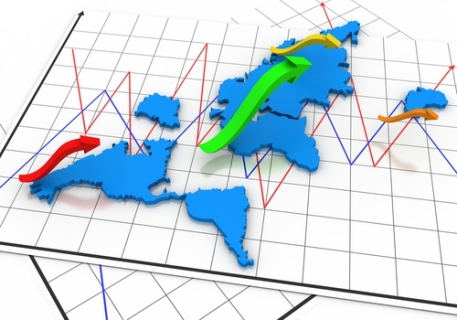
CEOs are less optimistic about the economy this year than last, according to a PwC survey unveiled at the World Economic Forum in Davos, Switzerland, this week.
PwC’s annual survey found that just 37 percent of corporate chiefs think the economy will improve in 2015, down from 44 percent in 2014. The survey of more than 1,300 chief executives in 77 countries, which was performed in the final quarter of 2014, also detected a shift in confidence from emerging markets to western markets. CEOs ranked the U.S. as their most important growth market in 2015, putting it ahead of China for the first time in the five years the survey has asked that question. (China, for its part, has also beefed up its government support for e-commerce, in part to tap western consumers.)
Not surprisingly, the biggest drop in confidence in the economy came from the CEOs of Russian companies, down to just 16 percent from 53 percent last year, due to problems caused by sanctions and falling oil prices, BBC News reported.
European CEOs are also pessimistic about their companies’ growth prospects, with about 30 percent seeing the economy improve. France (23 percent) and Italy (20 percent) were among the least confident. But U.K. (39 percent) and German (35 percent) CEOs were more optimistic.
CEO confidence in growth is higher in North America, rising to 43 percent from 33 percent in 2014. In the U.S., 46 percent of CEOs saw growth, and 50 percent of Mexican CEOs were optimistic. Farther south, 30 percent of Brazilian CEOs had a positive view, but those in Argentina (17 percent) and oil-dependent Venezuela (22 percent) were among the most pessimistic.
CEOs in the Asia Pacific region were the most confident of revenue growth at 45 percent, about the same as last year, with India at 62 percent, Australia at 43 percent and China at 36 percent positive. And the Middle East remains one of the most optimistic regions, with 44 percent of CEOs very confident of revenue growth, although that’s a big drop from last year’s 69 percent.
Globally, CEOs’ biggest worries are geopolitical uncertainties, overregulation and cybersecurity, the PwC survey found. “Concerns about cyber threats have shot up most compared to last year — and in light of the recent attacks on gaming and entertainment networks, the perceived risk will only increase,” the report said.